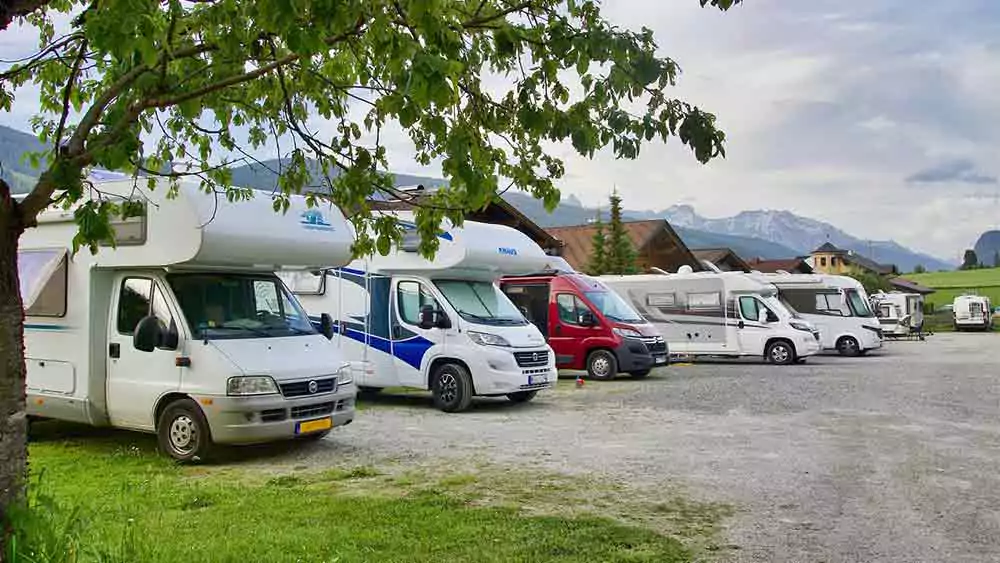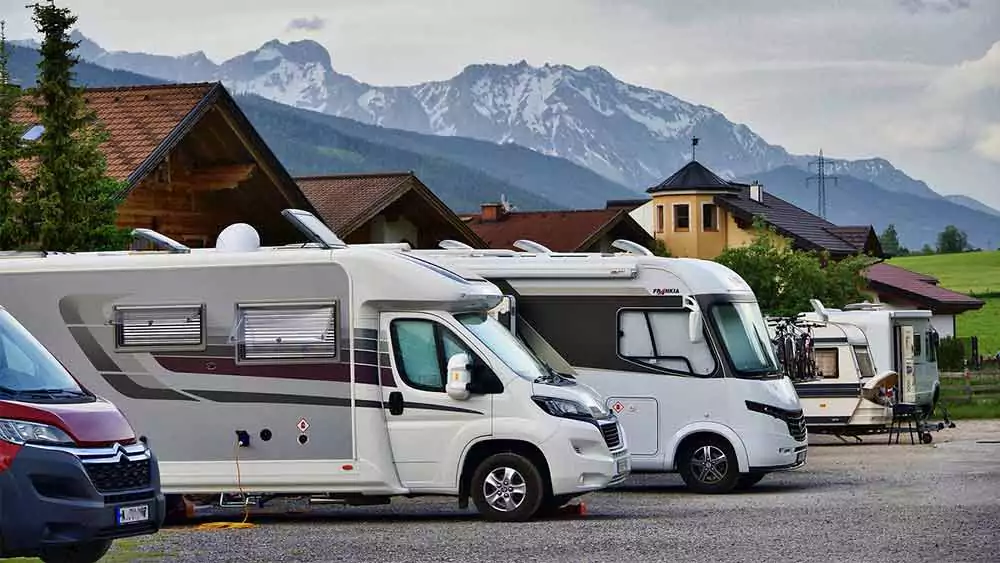Get to Know the Modern Day RV Industry

The recreational vehicle (RV) industry has experienced impressive growth over the years, evolving from a niche market into a robust and dynamic sector. As more people embrace the freedom of the open road and the convenience of mobile living, the RV industry continues to adapt with new technologies, designs, and opportunities. In this article, we’ll explore the modern state of the RV industry outlook for 2025, examine its economic impact, and discuss the promising job growth in supporting roles.
Top RV Industry Innovations to Look for in 2025
The RV industry outlook dives into rising demand, eco-friendly designs, and connectivity improvements in RV technology.
1. A Significant Economic Contributor

The RV industry has grown significantly and contributed significantly to the broader economy. This sector caters to the adventurous spirit of countless travelers and plays a vital role in job creation. According to the RV Industry Association, the sector is responsible for over 140,000 jobs. This impressive figure highlights how integral the industry is, supporting a wide range of roles from manufacturing and design to sales, marketing, and after-sales services.
2. Robust Production Numbers (RV Industry Outlook 2025)
The modern RV market is part of a larger automotive production ecosystem that consistently churns out millions of vehicles every year. In 2021, a staggering 9.2 million vehicles were produced in the United States, as reported by Zippia. While not all of these vehicles are RVs, the overall production numbers underscore the immense scale of the automotive industry. This production volume indicates not only a healthy demand for personal and commercial vehicles but also the potential for the RV segment to continue growing alongside broader automotive trends.
3. Growth in Specialized Service Roles

Supporting the RV industry is a network of skilled professionals, particularly those involved in the maintenance and repair of diesel-powered vehicles. As modern RVs become more sophisticated, the demand for highly trained diesel service technicians and mechanics is rising. Employment in these specialised roles is projected to grow by 8% from 2020 to 2030, according to industry projections. This growth reflects the ongoing need for expert maintenance and the increasing complexity of RV systems, which require regular servicing to ensure safety and performance.
4. Innovation in RV Design and Technology
Today’s RVs are a far cry from the basic travel trailers of the past. Modern RVs incorporate state-of-the-art technology that enhances comfort, connectivity, and sustainability. Innovations such as smart home integration, energy-efficient appliances, and advanced navigation systems have made RVs more appealing to a broader audience. Manufacturers are constantly improving designs to cater to a new generation of RV enthusiasts who value both luxury and functionality. These advancements are setting new benchmarks for the industry and attracting tech-savvy consumers.
5. Sustainability and Eco-Friendly Practices

Environmental concerns are increasingly influencing the design and operation of RVs. Many manufacturers are now focusing on sustainability by incorporating energy-efficient systems, solar panels, and eco-friendly materials into their builds. These efforts help reduce the carbon footprint of mobile living and ensure that the joys of travel do not come at the expense of the environment. As awareness of environmental issues grows, the RV industry’s commitment to sustainable practices is likely to enhance its appeal among environmentally conscious consumers.
6. Enhanced Lifestyle Benefits
The modern RV lifestyle offers unparalleled freedom and flexibility. For many, owning an RV means having the ability to travel on a whim, explore remote destinations, or even work on the road. This flexibility has become especially attractive in today’s fast-paced world, where the traditional concept of a permanent home is evolving. With RVs providing both mobility and comfort, more people are choosing to invest in these vehicles as a means to balance work, leisure, and adventure.
7. A Diverse Market with Something for Everyone

The RV industry today is diverse, catering to a wide range of preferences and budgets. From luxurious, fully-equipped motorhomes to compact, budget-friendly trailers, there is an RV for every lifestyle. This diversity is one of the key strengths of the industry, as it allows manufacturers and dealers to meet the needs of a varied customer base. Whether you are a seasoned traveler or a newcomer eager to explore the world of mobile living, the modern RV market offers numerous options to suit your requirements.
8. Future Prospects and Trends
Looking ahead, the future of the RV industry appears bright. As technology continues to evolve and consumer preferences shift toward more flexible lifestyles, the industry is poised to expand even further. Innovations in electric and hybrid models, along with enhanced connectivity and autonomous features, are on the horizon. These developments promise to make RVs more efficient, environmentally friendly, and accessible to a wider audience, ensuring that the industry remains at the forefront of mobile living trends.
Closing Statement:
In conclusion, the modern RV industry is not only a symbol of freedom and adventure but also a vital economic force that supports a vast network of jobs and contributes significantly to the automotive production landscape. With ongoing innovations, a growing emphasis on sustainability, and strong prospects, investing in an RV today is an exciting opportunity to join a dynamic and evolving market.
Related Content: Most Luxurious RVs

news via inbox
Sign up and never miss out on the latest news and updates at HighStuff




